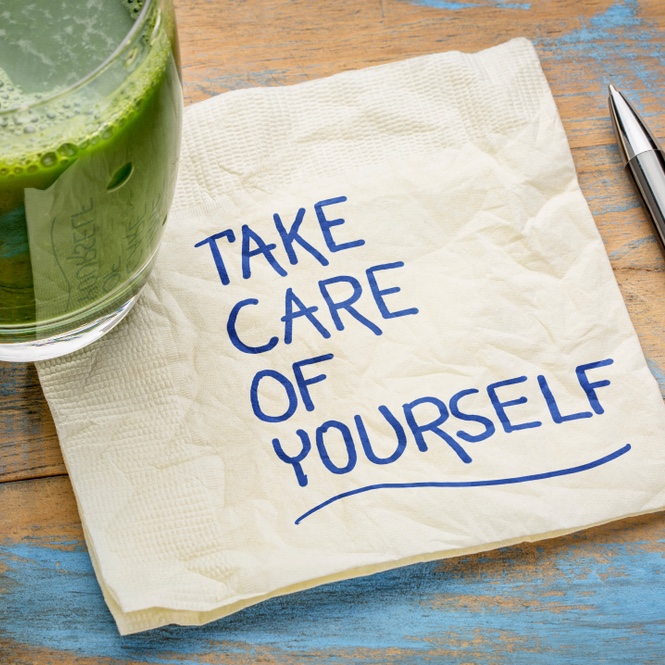5 Minute Read
Words by Kelly Foster
Share this article…

Practising self-care is vital for your mental and physical well-being.
Kelly Foster discovers how to get started.
How often are you the last person on your list of priorities? Do you always find it all too easy to put your commitments to family and friends before your own needs? While nobody wants to be that person who only thinks of themselves, there needs to be a balance. Make this Valentine’s Day the start of a simple self-care programme and learn how to love yourself.
You are special, and it’s important to recognise it and value who you are. By looking after yourself you can be a better mum, daughter, partner, colleague and still be your own best-friend.
Here is a simple ten step guide to help you show yourself some important love.
1. What exactly is self-care?
Self-care involves taking time for yourself to recharge and prioritise your well-being. This can include activities like exercise, reading, meditation, taking a bath, or simply doing something you love. Remember that self-care is not selfish, but necessary for your overall health.
2. Can you find your centre?
Finding your centre means discovering the things that ground and balance you. It could be a particular place, a hobby, a routine, or even a mantra. It’s about creating a sense of stability and status quo in your life.
3. Discover mindfulness
Mindfulness involves being fully present in the moment, enjoying it and paying attention to your thoughts, emotions, and bodily sensations without judging yourself. Regular mindfulness meditation can help you develop this skill.
4. Listen to your emotions
Pay attention to your emotions and their triggers. You’ll start to see a pattern. Practise identifying and labelling your feelings. This can help you understand yourself better and help you make more conscious choices when you respond to situations.
5. Find compassion
Be compassionate to yourself and others. Treat yourself with the same kindness and understanding that you’d offer to a friend. When you’re compassionate, you can handle difficult situations better and develop stronger relationships with others as well as with yourself.
6. Be thankful for what you have
Cultivate a sense of gratitude for any positive aspects of your life. Sometimes this can be really hard when life just sucks and is really tough – but if you can recognise some light it can help shift your focus away from negative thoughts and maybe distract you from the cause of your unhappiness.
If you get in the routine of doing it daily it can over time help change your perspective. Keeping a glimmer list can really help.
7. Set boundaries
Recognise what you are capable of and the things that cause you stress or unhappiness. Establish healthy boundaries with people and situations that may cause you discomfort. Boundaries can help protect your emotional well-being. Let others know what you are happy to do and what makes you sad or stressed.

8. Connect with nature
Spending time in nature can have a calming and rejuvenating effect. Whether it’s a walk in the park or simply sitting outside, connecting with the natural world can help you feel more calm and at ease. Look at the sky, the trees, breathe in fresh air and for a moment let it be just you and the world.
9. Ask for help
Don’t hesitate to seek support from friends, family, or a therapist when you feel you need it. Talking about your emotions and concerns can be a crucial part of self-care. Bottling up your emotions and worries can just make them feel worse. There is a reason why they say, a problem shared is a problem halved. You can feel better just from talking and someone else’s viewpoint can help you see a tense situation completely differently.
10. Practice patience
Personal growth and emotional well-being are never instant solutions. They are ongoing journeys. We all have setbacks and challenges. Be patient with yourself and your progress. Making time and giving yourself the love you deserve is a step in the right direction.
Self-care and personal growth are unique to each individual. What works for one person may not work for another, so it’s essential to explore and find the strategies that resonate with you. The goal is to build resilience in the face of provocation and life’s challenges.
Good luck!
Share this article…





